והיה ביום ההוא יתקע בשׁופר גדול ובאו האבדים בארץ אשׁור והנדחים בארץ מצרים והשׁתחוו ליהוה בהר הקדשׁ בירושׁלם׃
On that day Adonai will beat out the grain between the Euphrates River and the Vadi of Egypt; and you will be gathered, one by one, people of Isra'el! On that day a great shofar will sound. Those lost in the land of Ashur will come, also those scattered through the land of Egypt; and they will worship Adonai on the holy mountain in Yerushalayim.
(Isa 27:12-13 CJB)
The haftarah this week is the calling of Moshe to be the deliverer of Israel. It also introduces us to the elements that constitute this miraculous and powerful deliverance.
The prophet Isaiah, who is a great poet and also comes from a priestly family, writes about the fate of Israel. In his days, Israel consisted of two kingdoms: Judah in the South and Ephrayim in the North.
Though himself a Judean, Isaiah prophesied much concerning the coming deportation of the northern kingdom. He also was quite concerned with Judean affairs.
CONTEXT OF THE HAFTARAH
Our haftarah comes on the heels of a series of unconnected oracles. At that time, Israel was split into two adversarial kingdoms. The Northern Kingdom was in constant war with Judea and its allies.. It was so bad that Ahaz, the King of Judah, sought an alliance with the Assyrian King Tiglath-Pileser, which eventually turned against him (2 Chron 20). In the end, Ahaz was paying tribute to Assyria and Judea became its vassal. This is what happens when the people of God rely on their own wisdom rather than the commandment of God.
When Ahaz’s son, Hezekiah, took the throne of Judea, it was still under Assyrian domination. Here is an overview of the situation in the words of Daniel Lancaster:
“In the beginning of his tenure, Hezekiah found the priesthood in disarray. The Temple had been closed up by his father Ahaz. The priests were no longer conscientious in matters of ritual purity (2 Chron 29:34). In this haftarah portion, Isaiah brings harsh rebuke against the priests and prophets of Jerusalem. Hezekiah tried to reverse the mischief his father had created for Judah. He led a massive forearm, reconstituted the Levitical worship system, and campaigned against apostasy. He also wanted to escape Assyrian control. He and the leadership of Judah looked to Egypt for political and military alliance. In this haftarah, Isaiah rebukes the Judean leadership for spiritual insobriety and political alliances with foreign powers. … Isaiah pronounces doom and woe upon Israel (Northern Kingdom) and Judah, but his fearful prophecies are punctuated with glimpses of redemption.”
After a series of gloom and doom warnings, in the style of Moses as he looked upon the glorious future of Israel, Isaiah prophecies:
The time is coming when Ya`akov will take root; Isra'el will bud and flower, and fill the whole world with a harvest. (Isa 27:6 CJB)
The prophecy was about Israel flourishing and filling the world, not just the land. The Hebrew word used in the original is “tevel/תבל”, a word that refers to the earth as the globe, not just the land. This statement connects us to the parasha that begins the Book of Exodus, which tells us that Jacob/Israel came to Egypt and took root and flourished in Egypt. Isaiah’s prophecy presents us with the idea that one day, Israel will flourish in the Land, as well as spread its presence into all the world.
As he speaks to Israel’s rocky future due to its disobedience, Isaiah makes a difference between the oppression of the enemy and the disciple of HaShem. He puts it this way:
[Adonai] will not strike Isra'el, as he did others who struck Isra'el; he will not kill them, as he did the others. (Isa 27:7 CJB)
The striker, the whip, the instrument HaShem uses to strike and punish Israel, is the Assyrian Empire--thus meaning that the punishment of Israel was not an annihilation as HaShem did with other nations, but a temporary exile. Many countries who HaShem has allowed to strike Israel as a punishment do not exist anymore. Israel still does! Then says:
Your controversy with her is fully resolved by sending her [into exile]. He removes her with a rough gust of wind on a day when it's blowing from the east. (Wind blowing from the East goes West.) So the iniquity of Ya`akov is atoned for by this,
Then, almost as if borrowing a page from John the Immerser when he asks for the Sadduccean priests to produce fruit for repentance (Mat 3:8):
and removing his sin produces this result: he chops up all the altar stones like chalk -- sacred poles and sun-pillars stand no more. (Isa 27:8-9 CJB)
In the literal reading of the text, the prophet describes the future of Shomron (Samaria), the capital city of the Northern Kingdom. He sees her desolate and in ruins. Of course, this also has cosmic repetitions into the endtime where the desolated city is implied to be Rome. For now, it is Samaria.
For the fortified city is alone, abandoned and deserted, like the desert. Calves graze and lie down there, stripping its branches bare. When its harvest dries up, it is broken off; women come and set it on fire. For this is a people without understanding. Therefore he who made them will not pity them, he who formed them will show them no mercy. (Isa 27:10-11 CJB)
As is the nature of Biblical prophecy, the oracle takes us far away in the future, to a time when Israel will exist according to the borders given to Abragam: "I have given this land to your descendants -- from the Vadi of Egypt to the great river, the Euphrates River -- (Gen 15:18 CJB). And Moses: I will set your boundaries from the Sea of Suf to the sea of the P'lishtim and from the desert to the [Euphrates] River, for I will hand the inhabitants of the land over to you, and you will drive them out from before you.” (Exo 23:31 CJB)
Isaiah says,
After On that day Adonai will beat out the grain between the Euphrates River and the Vadi of Egypt; and you will be gathered, one by one, people of Isra'el! (Isa 27:12 CJB)
Continuing on the endtime, the prophet sees the ingathering, a very appropriate theme for our current parasha. While Isaiah speaks of the post-Assyria/Babylone exile, the text also alludes to the great ingathering following the present Roman Exile.
On that day a great shofar will sound. Those lost in the land of Ashur will come, also those scattered through the land of Egypt; and they will worship Adonai on the holy mountain in Yerushalayim. (Isa 27:13 CJB)
More of the same can be found in:
I will whistle for them and gather them, because I have redeemed them; they will be as numerous as they were before; and I will sow them among the peoples. In distant lands they will remember me; they will rear their children and then return. I will bring them back from the land of Egypt and gather them out of Ashur. I will bring them into Gil`ad and the L'vanon, until there is no more room for them.
(Zec 10:8-10 CJB)
But immediately following the trouble of those times, the sun will grow dark, the moon will stop shining, the stars will fall from the sky, and the powers in heaven will be shaken. "Then the sign of the Son of Man will appear in the sky, all the tribes of the Land will mourn, and they will see the Son of Man coming on the clouds of heaven with tremendous power and glory. He will send out his angels with a great shofar; and they will gather together his chosen people from the four winds, from one end of heaven to the other.
(Mat 24:29-31 CJB)
Look, I will tell you a secret -- not all of us will die! But we will all be changed! It will take but a moment, the blink of an eye, at the final shofar. For the shofar will sound, and the dead will be raised to live forever, and we too will be changed.
(1Co 15:51-52 CJB)
For the Lord himself will come down from heaven with a rousing cry, with a call from one of the ruling angels, and with God's shofar; those who died united with the Messiah will be the first to rise; then we who are left still alive will be caught up with them in the clouds to meet the Lord in the air; and thus we will always be with the Lord.
(1Th 4:16-17 CJB)
In the days of the sound from the seventh angel when he sounds his shofar, the hidden plan of God will be brought to completion, the Good News as he proclaimed it to his servants the prophets."
(Rev 10:7 CJB)
REBUKE TO EPHRAYIM/NORTHERN KINGDOM
Isaiah 28 starts a new oracle. Scholars refer to Isaiah 28-33 as the Book of Woes. Let’s go back to Daniel Lancaster to give us a sense of historical context:
“As Isaiah 28 begins, Isaiah is in the court is in the city of Jerusalem attending a court function at which priests, prophets, and nobility of Judah have gathered for a ritual meal. He begins by pronouncing an oracle of woe against the city of Samaria, the capital of the Northern Kingdom.
Isaiah prophecies:
Woe to the haughty crown of Efrayim's drunks, to the fading flower of its proud splendor, located at the head of the rich valley belonging to people overcome by wine! (Isa 28:1 CJB)
Adonai has someone strong and powerful. He comes like a hailstorm, a destructive tempest, like a flood of water, rushing, overwhelming; with his hand he hurls them to the ground. The haughty crown of Efrayim's drunks is trampled underfoot; and the fading flower of its proud splendor, located at the head of the rich valley, is like the first ripe fig of summer -- whoever sees it picks and eats it. (Isa 28:4 CJB)
Isaiah saw the prediction fulfilled within his lifetime, probably just within a year or so,
It was in the fourth year of King Hizkiyahu, which was the seventh year of Hoshea son of Elah, king of Isra'el, that Shalman'eser king of Ashur advanced against Shomron and laid siege to it. At the end of three years they captured it -- that is, Shomron was captured in the sixth year of Hizkiyahu, which was the ninth year of Hoshea king of Isra'el.
(2Ki 18:9-10 CJB)
Isaiah also sees the restoration of Samaritain the Messianic Age:
On that day, Adonai-Tzva'ot will be a glorious crown, a brilliant diadem for the remnant of his people. He will also be a spirit of justice for whoever sits as a judge, and a source of strength for those repelling enemy attacks at the gate. (Isa 28:6 CJB)
This restoration is echoed in,
On that day, Adonai's plant will be beautiful and glorious; and the fruit of the land will be the pride and splendor of Isra'el's survivors. Those left in Tziyon and remaining in Yerushalayim will be called holy, and everyone in Yerushalayim written down for life.
(Isa 4:2-3 CJB)
REBUKE TO JUDAH/SOUTHERN KINGDOM
Isaiah gave his woeful message concerning Samaria to the safe audience of Judean leaders. But now, he will turn his attention to the ultimately intended audience itself. He will utters HaShem’s words of rebuke to Judah, who he will call “scoffers, composing taunts for this people in Yerushalayim!” (Isaiah 28:14).
The word “scoffer” is a well chosen word, as Solomon said, “Wine is a mocker” (Prov 20:1), and the first thing that the prophets address is the drunkenness of priests during service. The Torah forbids priests to serve in the Temple while inebriated. ("Don't drink any wine or other intoxicating liquor, neither you nor your sons with you, when you enter the tent of meeting, so that you will not die. This is to be a permanent regulation through all your generations”Lev 10:9 CJB)
But there are others reeling from wine, staggering about because of strong liquor; cohen and prophet reel from strong liquor, they are confused by wine. Led astray by strong liquor, they err in their visions and stumble when judging. (Isa 28:7 CJB)
Rabbi Shimon said: If three have eaten at one table and have not spoken over it words of Torah, it is as though they had eaten of the sacrifices of the dead, for it is written (Isaiah 28:8) “All tables are covered with filthy vomit; no place is clean.” But if three have eaten at one table and have spoken over it words of Torah, it is as if they had eaten from the table of God, for it is written (Ezekiel 41:22) “He said to me, ‘This is the table that stands before the LORD.’ ” (m.Avot 3:4) ,
Now we can understand what Isaiah says:
All tables are covered with vomit and feces, not a single place is clean. (Isa 28:8 CJB)
The prophet exposes the priests and prophets of Jerusalem for not executing their duties responsibly.
Everyone thinks that they are so smart on their own and righteous in their own eyes that they refuse to be taught anything. As such, they refuse the words of the prophet. HaShem, through Isaiah, asks:
Can no one be taught anything?
Can no one understand the message?
They then accuse Isaiah of treating them like children, teaching them through nursery rhymes as we teach a barely weaned toddler (about 3 years old). The prophet continues:
Must one teach barely weaned toddlers, babies just taken from the breast, so that [one has to use nursery rhymes]? -- Tzav la-tzav, tzav la-tzav, kav la-kav, kav la-kav z`eir sham, z`eir sham [Precept by precept, precept by precept, line by line, line by line, a little here, a little there]. So with stammering lips, in a foreign accent, [Adonai] will speak to this people. (Isa 28: 9-11 CJB)
This sounds similar to the writer of the Book of Hebrews who challenged the Israeli believers of his days with:
You have become sluggish in understanding. For although by this time you ought to be teachers, you need someone to teach you the very first principles of God's Word all over again! You need milk, not solid food! Anyone who has to drink milk is still a baby, without experience in applying the Word about righteousness. But solid food is for the mature, for those whose faculties have been trained by continuous exercise to distinguish good from evil. Therefore, leaving behind the initial lessons about the Messiah, let us go on to maturity, not laying again the foundation of turning from works that lead to death, trusting God, and instruction about washings, s'mikhah, the resurrection of the dead and eternal punishment. And, God willing, this is what we will do.
(Heb 5:11-6:3 CJB)
As he tries to make the Corinthian believers understand that the gift of tongues was the gift of the ability to speak another identifiable language that one has not learned (Acts 2: 6-8) and not some sort of humanly incomprehensible language composed of nonsensical syllables not unlike those a baby would make nor as what Isaiah describes in Is 28: 10, Paul loosely uses that iluustration in,
“Brothers, don't be children in your thinking. In evil, be like infants; but in your thinking, be grown-up. In the Torah it is written, "By other tongues, by the lips of foreigners I will speak to this people. But even then they will not listen to me," says Adonai.
(1Co 14:20-21 CJB)
As a rule, the haftarah has to end on a positive note. The text therefore stops here to continue at the end of the oracle, where HaShem reminds Israel of his irrevocable promise made to Abraham:
Therefore, here are the words of Adonai, who redeemed Avraham, concerning the house of Ya`akov:"Ya`akov will no longer be ashamed, no longer will his face grow pale. When his descendants see the work of my hands among them, they will consecrate my name. Yes, they will consecrate the Holy one of Ya`akov and stand in awe of the God of Isra'el.”
(Isa 29:22-23 CJB)
But with respect to being chosen, they are loved for the Patriarchs' sake, for God's free gifts and his calling are irrevocable.
(Rom 11:28-29 CJB)
My own signature for this promise will be,
So there remains a Shabbat-keeping for God's people.
(Heb 4:9 CJB)
and
... all Isra'el will be saved.
(Rom 11:26 CJB)
AND WHAT DO WE LEARN FROM THIS
One of the big takeaways from this haftarah behind the promised redemption. Isa 27:8-9 says "removing his sin produces this result: he chops up all the altar stones like chalk -- sacred poles and sun-pillars stand no more."
This means that that which removes sin produces a change of behavior. A person who claims to have been redeemed is a different person. It is a person who does not practice the old things he used to practice before.
The sages of Israel say that pride is the highest form of idolatry as it is the worship of self. What the verse teaches us is that if a person used to be dishonest, they now strive for integrity; that if a person was angry, they now reach for the peace that can fill their hearts; that if a person was covetous, they are now learning to be satisfied with what HaShem gives them; that if a parson was lustful, they now do what is necessary to have self-control; that if a person had a tendency to be proud, critical, divisive, and arrogant, that person is now embracing the values of being meek, understanding, and humbly able to work in consensus with others, all very important things in our congregations.
MAY WE ALL LET HASHEM DO TO US WHAT HE SIAD REDEMPTION DOES TO ISRAEL.
MAY WE ALL GIVE HIM PERMISSION TO "CHOP UP ALL OUR ALTAR STONES, SACRED POLES, AND SUN-PILLARS OF SELF LOVE LIKE CHALK.
(By the way, He does generally wait for our permission to do it!)
R' Gabriel
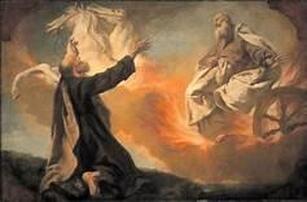
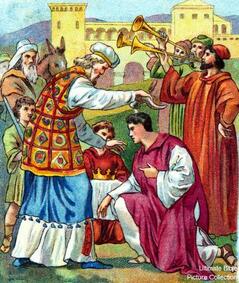
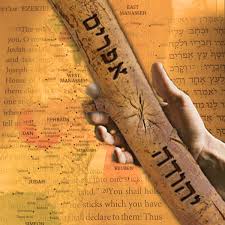
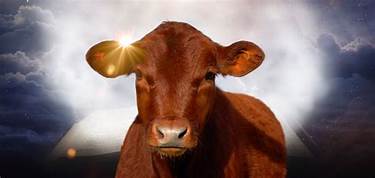
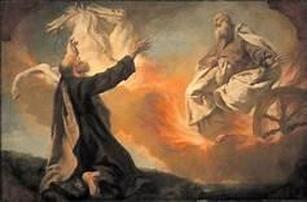
 RSS Feed
RSS Feed